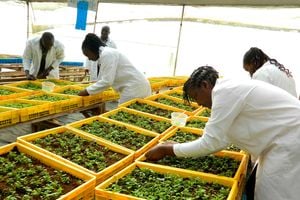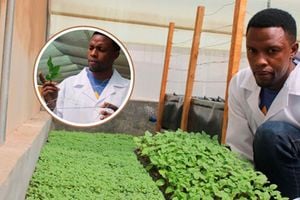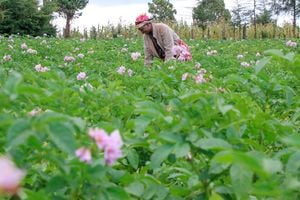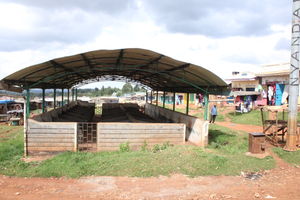Breaking News: Former Lugari MP Cyrus Jirongo dies in a road crash
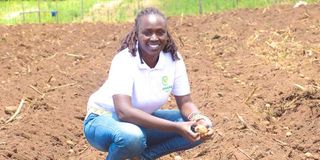
Winnie Wambugu, the co-founder of Nakuru Tubers. She is on a mission to transform potato farming.
Potatoes are a critical piece of the country’s economic puzzle. Growing in significance and demand, these tubers provide a steady income for smallholder farmers and drive local economies.
From villages to urban markets, potatoes are deeply woven into the fabric of Kenya’s farming system.
However, challenges such as low yields, poor-quality seeds, diseases and climate change continue to hinder the growth of Kenya’s potato industry.
This is where Nakuru Tubers, led by founder and MD Winnie Wambugu, is making a difference.
With a background in horticulture, seed potato research and business management, Wambugu has used her academic expertise and professional experience to lead a team focused on transforming the potato farming landscape in Kenya.
“Our mission is to train smallholder farmers, especially women, youth and communities, by addressing the challenges they face in agriculture. We aim to help them improve yields, minimise post-harvest losses and strengthen resilience to the growing effects of climate change,” she says.
The company has identified the need for innovation and investment in science and technology to address these challenges.
“A major bottleneck in the potato sector is the quality of seeds. Many farmers rely on traditional methods of seed production, leading to the proliferation of diseases that affect yields and quality,” she says.
Through hydroponics, tissue culture and other technology, Nakuru Tubers has revolutionised the production of potato seeds.
Using hydroponics, the company grows seeds in a controlled environment, reducing the risks of diseases.
Tissue culture involves propagating potato plants from tissue samples in a sterile laboratory environment, ensuring farmers get high-quality, disease-resistant seed potatoes with high yield potential.
This focus on disease-free seed potato production is crucial to the success of smallholder farming. Nakuru Tubers is laying the foundation for improved productivity and sustainable farming practices by offering access to these high-quality seeds.
Another significant challenge in Kenyan agriculture is the increasingly erratic weather patterns as a result of climate change.
“The potato crop is particularly vulnerable to extreme weather, with prolonged droughts and heavy rains affecting yields and quality. We are developing climate-resilient seed potato varieties,” she says.
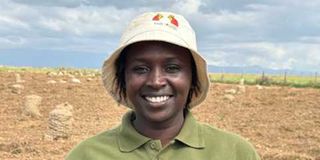
Winnie Wambugu, the founder of Nakuru Tubers, is transforming Kenya's potato farming landscape. Her mission empowers smallholder farmers to boost yields, reduce postharvest losses, and strengthen resilience to climate change.
The stress on climate-resilient varieties is not just about ensuring food security but making farmers adapt to the challenges created by global warming.
With the rising cost of production and diminishing resources, these seed varieties offer smallholder farmers a fighting chance.
A critical issue facing Kenya’s potato farmers is post-harvest losses.
“Potatoes are highly perishable. Without the proper storage, farmers can lose huge portions of their harvest. We are addressing this by introducing IoT (Internet of Things)-powered seed potato storage units,” she says.
These units are designed to maintain optimal conditions for potato preservation.
The IoT-powered systems use sensors to monitor temperature, humidity and other critical factors in real-time, providing farmers with data that can help them make informed decisions about storage.
This technology is beneficial for farmers unable to access modern cold storage facilities or are in remote areas.
Wambugu says the technology has helped farmers preserve the value of their harvest and reduce waste, allowing them to sell their produce at better prices.
One of the company’s key offerings is its farmer training programmes.
“The programmes focus on sustainable farming, pest and disease management, soil health, water conservation and the efficient use of inputs,” she notes.
Wambugu says women and youth are at the forefront of farming work but face barriers in accessing education, resources and technology. Tailored training and support programmes help these groups succeed.


